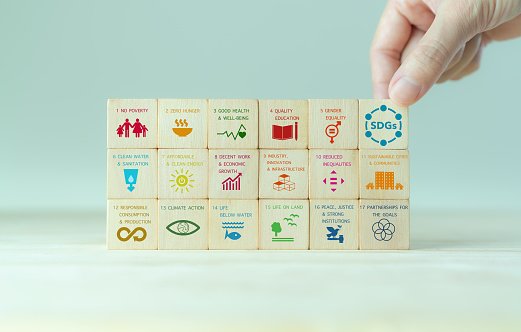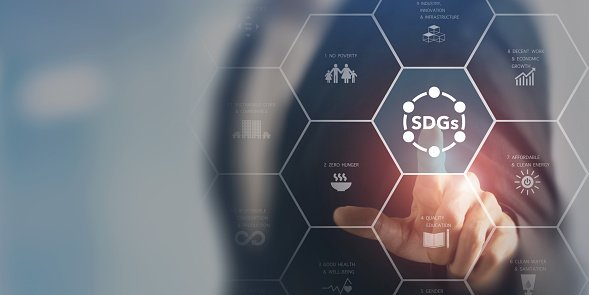Carbon markets could boost climate action in least-developed countries

UN Photo/Eskinder Debebe | Mangrove shoots being planted on Tarawa, an atoll in the Pacific island nation of Kiribati to protect against coastal erosion
A recent UNCTAD report highlights the limited role of carbon markets in promoting sustainable development in the world’s least developed countries (LDCs), emphasizing that stronger domestic regulations and monitoring could enhance their benefits. The report, launched on November 4, 2024, suggests that LDCs can leverage carbon market projects to offset emissions and attract investment, but they face significant barriers due to their size and challenges in accessing foreign investment. Currently, six LDCs—Bangladesh, Cambodia, the Democratic Republic of the Congo, Malawi, Uganda, and Zambia—account for over 75% of carbon credits issued in voluntary markets and 80% under the Clean Development Mechanism (CDM). Despite this participation, LDCs only represent 1.5% of global CDM projects, indicating a need for more inclusive engagement. In 2023, carbon credits from these nations generated about $403 million, a small fraction of the $1 trillion needed annually to meet Sustainable Development Goals by 2030. The report identifies significant untapped potential in land-based sectors like forestry and agriculture, which could yield emission reductions equivalent to 70% of global aviation emissions in 2019. However, achieving this requires a carbon price of $100 per ton to make projects viable. UNCTAD recommends strengthening domestic frameworks, enhancing international partnerships, and prioritizing capacity-building to help LDCs maximize their climate potential while contributing to global climate goals.
One in three women experiences gender-based violence

© UNFPA Mali/Amadou Maiga | A woman with her baby attends a UN-run awareness-raising session on gender-based violence at the One Stop Centre in Sominé Dolo Hospital in Mopti, Mali.
The 16 Days of Activism campaign, running from November 25th to December 10th, aims to eliminate violence against women and girls. The UNITE Campaign, launched in 2008, supports this initiative, focusing on prevention and long-term solutions. The scale of the problem is alarming: nearly one in three women experience violence, and femicides are on the rise. Conflict zones exacerbate the issue, with gender-based violence increasing significantly. Activists like Lyudmila Huseynova, a survivor of sexual violence in Ukraine, are fighting for justice and recovery for victims. We can all contribute to ending this violence by supporting organizations, advocating for stronger laws, and supporting women in our lives. Governments must enact laws to hold perpetrators accountable and fund women’s rights organizations to support survivors. The 16 Days of Activism emphasizes that every action, no matter how small, can contribute to a world free from gender-based violence.
Artificial Intelligence: rooting out bias and stereotypes

© ADB/Ariel Javellana | Girls attend a science class at a school in Indonesia.
The UN General Assembly’s High-Level Week highlighted the growing concern over women’s underrepresentation in the tech industry, particularly in AI. Experts like Sarah Steinberg from LinkedIn pointed out the declining hiring rates of women in tech-related fields. Platforms like Roblox offer a promising avenue for marginalized voices, including women, to gain a platform and contribute to the digital world. However, the issue of bias in AI development remains a significant challenge. Hélène Molinier emphasized the need for human responsibility in deploying AI systems, even with their inherent flaws. Amandeep Singh Gill, the UN Secretary-General’s Envoy on Technology, addressed the need for effective AI guardrails that balance innovation and protection. He highlighted the importance of bridging the AI divide by focusing on legislative understanding, data accessibility for local researchers, and international cooperation. In conclusion, the discussions at the UN General Assembly emphasized the urgent need to address women’s underrepresentation in AI, mitigate bias in AI systems, and ensure ethical and equitable development of AI technologies.
COP29 draft deal proposes wealthy nations give $250 billion in climate finance

UNFCCC/Kiara Worth | Civil society groups at COP29 in Baku, Azerbaijan, advocate for climate financing initiatives that are in line with the Paris Agreement.
At COP29 in Baku, Azerbaijan, negotiators are grappling with a new draft outcome text that sets a climate financing goal of “at least $1.3 trillion by 2035” but lacks specific mechanisms for raising these funds, such as grants or loans from developed countries. Key issues under discussion include the responsibilities of developed nations in providing this finance, establishing a global goal for a just transition, and outlining strategies for adaptation and mitigation. The conference is expected to reconvene on Saturday for further negotiations.Civil society advocates have expressed strong dissatisfaction with the draft, with some demonstrating by taping “Pay up!” signs to their faces. Critics like Kelly Stone from ActionAid and Namrata Chowdhary from 350.org described the draft as disappointing and insulting, arguing that it fails to address the urgent financial needs of developing nations. They emphasize that climate finance should not come in the form of loans, as this exacerbates existing debt burdens. The conference has been labeled the “climate finance COP,” aiming to establish a new collective quantified goal (NCQG) to replace the expiring $100 billion target. Although developed nations have committed to providing $300 billion annually by 2035, many developing countries view this as insufficient compared to their demands for $1.3 trillion. The negotiations have highlighted deep divisions within the global community regarding climate finance and responsibility, with significant implications for future climate action initiatives.
References
https://news.un.org/en/story/2024/11/1156486
https://news.un.org/en/story/2024/11/1157046



